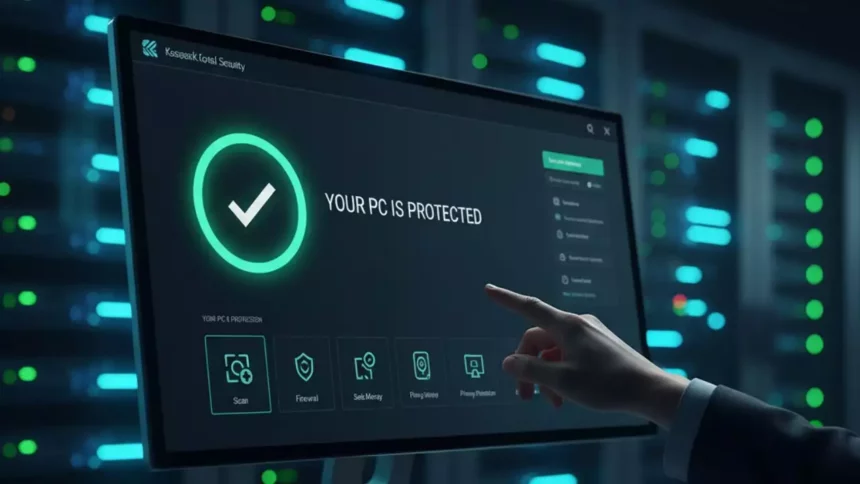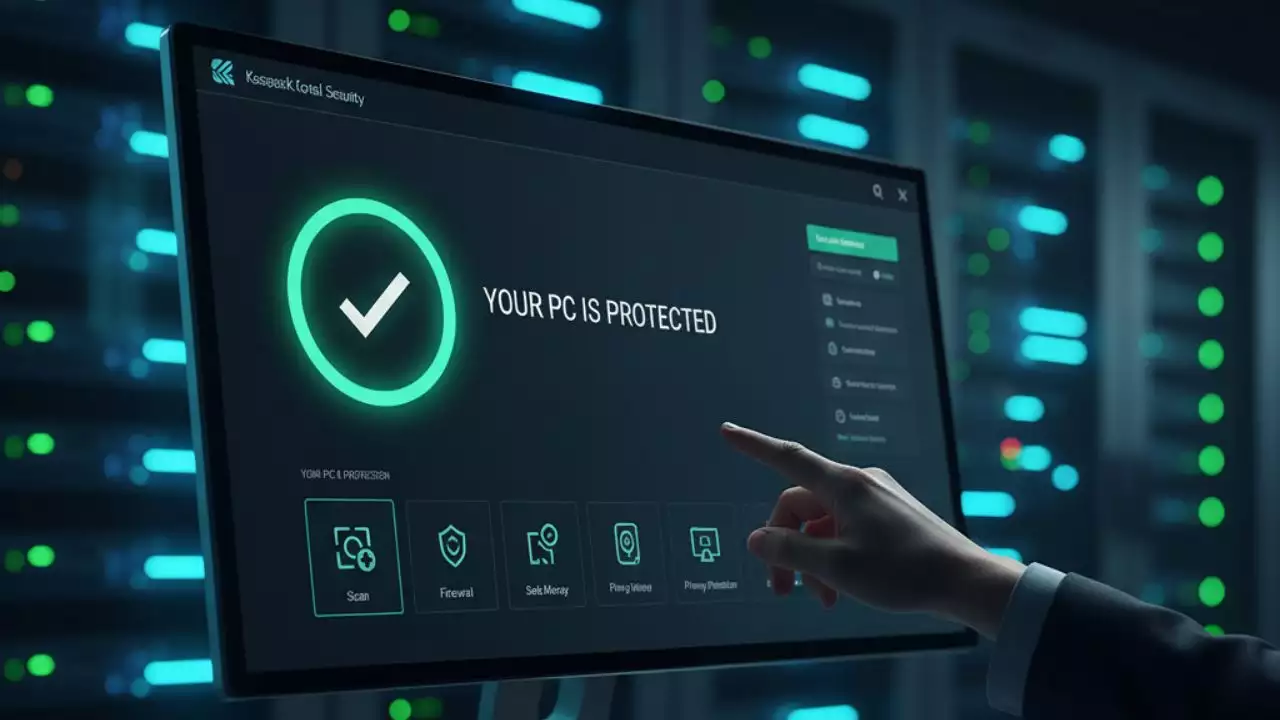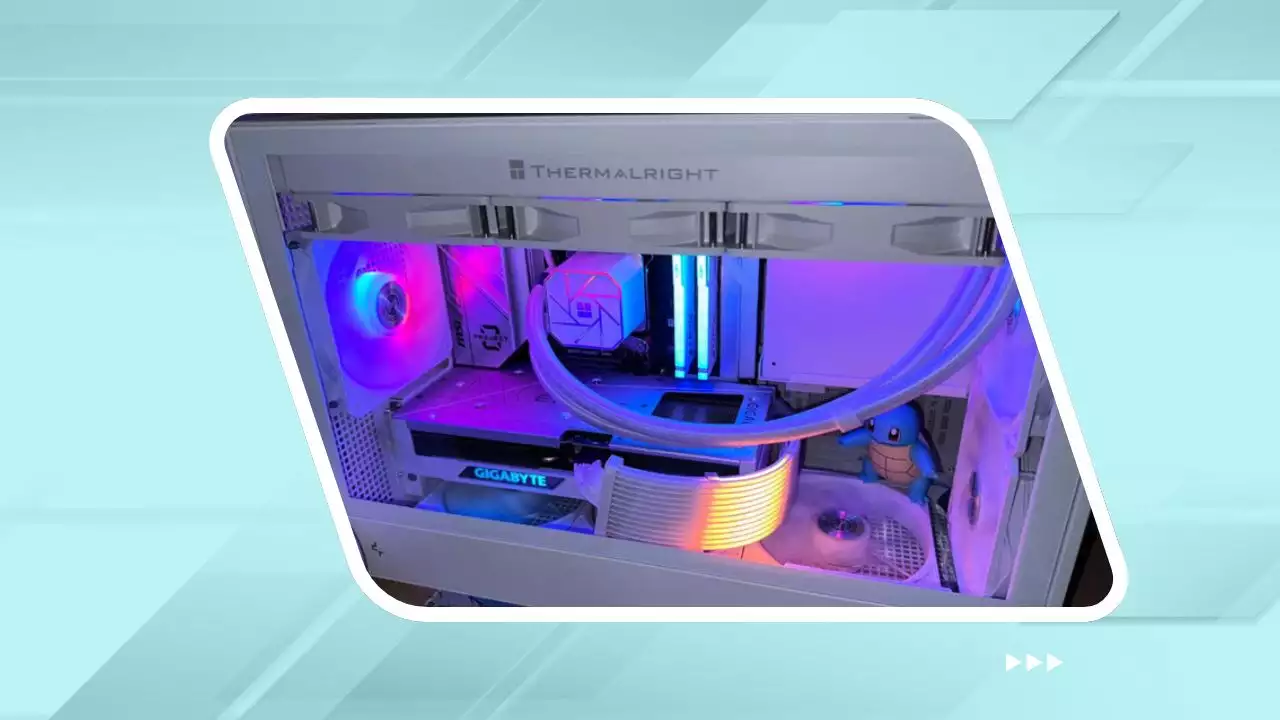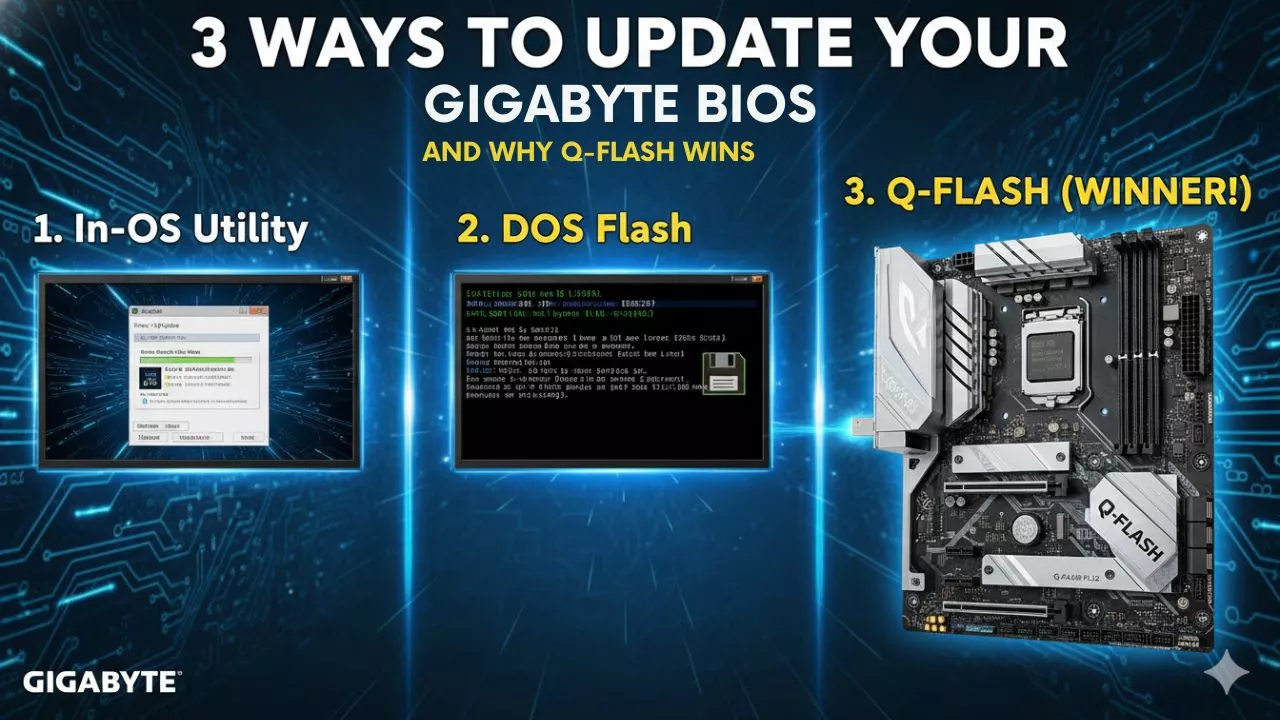In today’s interconnected world, where we rely on computers, smartphones, and other devices for everything from work to entertainment, the threat of malicious software lurks around every corner. If you’re wondering what antivirus software is and why it’s crucial, you’re in the right place. This article will break down the essentials, explore its evolution, and provide practical insights to help you navigate the digital landscape safely. As an expert in cybersecurity, I’ll guide you through this topic with clear explanations, drawing from verified sources and current trends up to 2025.
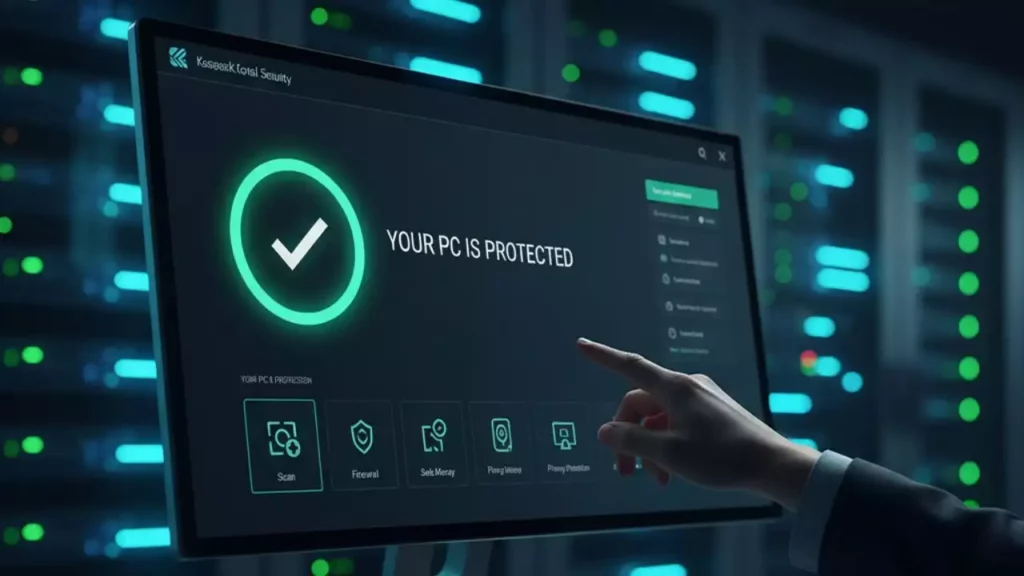
Antivirus software, at its core, is a specialized program designed to protect your devices from harmful code that can compromise your data, privacy, and even your system’s performance. Originally created to combat computer viruses, it has expanded to tackle a broader range of threats. Think of it as a vigilant guardian that scans for intruders and neutralizes them before they cause damage. With cyber threats becoming more sophisticated, understanding and using antivirus software isn’t just advisable, it’s essential for anyone online.
The Evolution of Antivirus Software
To truly appreciate what antivirus software is today, let’s rewind a bit. The concept emerged in the late 1980s when computer viruses first became a widespread issue. Early programs like early scanners were rudimentary, relying on simple signature-based detection to identify known viruses by matching patterns in files.
As technology advanced, so did the threats. By the 1990s, malware expanded beyond viruses to include worms, Trojans, and spyware. This led to the development of more robust antivirus solutions. Organizations like the Computer Antivirus Research Organization (CARO) played a key role in standardizing detection methods and sharing knowledge among experts.
Fast-forward to the 2000s, and we saw the rise of internet connectivity, which amplified risks. Antivirus software evolved to include real-time protection, automatic updates, and behavioral analysis. For instance, Microsoft Defender Antivirus, which started as a basic anti-spyware tool for Windows XP, has grown into a comprehensive security suite integrated into modern Windows versions.
By 2025, antivirus software has become even more intelligent, incorporating artificial intelligence (AI) and machine learning (ML) to predict and prevent attacks. These advancements allow for proactive defense, where the software can identify zero-day threats, malicious code that’s never been seen before, without relying solely on predefined signatures. This shift reflects the broader cybersecurity landscape, where endpoint detection and response (EDR) systems are now standard for businesses, monitoring devices in real time for anomalies.
How Antivirus Software Works
At the heart of antivirus software is its ability to detect and eliminate threats. But how does it actually work? Let’s dive in.
Most antivirus programs use a combination of techniques. Signature-based detection is the foundation: it compares files on your device against a database of known malware signatures. If a match is found, the software quarantines or deletes the file. However, this method has limitations, as it can’t catch new threats.
To address this, modern antivirus software employs heuristic analysis, which examines the behavior of programs. For example, if an application tries to modify critical system files without permission, the antivirus might flag it as suspicious. Heuristic engines often use algorithms to simulate potential attacks and assess risks.
Another key feature is real-time scanning, which monitors files as they’re downloaded or opened. This is particularly useful for email attachments or web browsing, where malicious links could lead to phishing attacks. Many programs also include a firewall component, which acts as a barrier between your device and the internet, controlling incoming and outgoing traffic.
In 2025, integration with cloud-based services has become commonplace. Instead of storing massive databases locally, antivirus software queries the cloud for the latest threat intelligence. This not only speeds up scans but also ensures you’re protected against emerging threats like ransomware, which encrypts your files and demands payment for access.
For users, the user interface is straightforward. You might see options like Scan Now, Settings, or Quarantine in the main dashboard. To perform a full system scan, simply click Scan Now and let the software do the work. It’s all about making protection accessible without overwhelming the average user.
Types of Antivirus Software
Antivirus software isn’t one-size-fits-all. There are various types tailored to different needs, devices, and budgets.
First, consider free versus paid options. Free antivirus software, like the built-in Microsoft Defender in Windows, offers basic protection and is great for casual users. It typically includes essential features like virus scanning and automatic updates. However, paid versions, such as those from Comodo or other vendors, provide advanced capabilities like parental controls, secure VPNs, and enhanced privacy tools.
Then, there’s the distinction by operating system. Windows users have access to Microsoft Defender Antivirus, which is deeply integrated with the OS. For Mac users, programs like Comodo Antivirus for Mac offer tailored protection against macOS-specific threats. Android and iOS devices often have mobile antivirus apps that focus on app permissions, phishing links, and secure browsing.
Business-oriented antivirus software goes a step further. It includes endpoint detection and response (EDR) features, allowing IT teams to manage security across multiple devices. In 2025, we’re seeing a rise in unified threat management (UTM) solutions that combine antivirus with other security layers, like intrusion detection systems (IDS).
If you’re choosing software, consider factors like compatibility, resource usage, and detection rates. A lightweight antivirus won’t slow down your system, which is crucial for gaming or creative work.
Key Features and Benefits
What makes antivirus software truly valuable are its features and the benefits they provide. Let’s explore some standout ones.
Real-time protection is a must-have, as it guards against threats as they happen. For instance, if you accidentally download a malicious file, the software can block it instantly. Many programs also offer scheduled scans, where you set the antivirus to run at off-peak hours, ensuring minimal disruption.
Another benefit is malware removal. Once detected, threats are isolated in a quarantine area, giving you the option to delete or restore files. This is especially useful for recovering from infections without losing important data.
In terms of benefits, antivirus software enhances overall security posture. It protects against identity theft by detecting phishing emails and prevents data breaches. For businesses, it reduces downtime caused by cyberattacks, saving both time and money.
However, it’s not flawless. Limitations include false positives, where legitimate files are mistakenly flagged as threats, and the potential for performance impacts on older hardware. Despite these, the advantages far outweigh the drawbacks, particularly with 2025’s optimized algorithms that minimize resource usage.
Installation, Usage, and Best Practices
Getting started with antivirus software is easier than you might think. Most programs offer simple installation processes. For example, to install Microsoft Defender Antivirus on a Windows machine, it’s often pre-installed, just search for Windows Security in the Start menu and follow the prompts.
Once installed, customize your settings. Under Settings, you can enable real-time protection, set up automatic updates, and configure exclusion lists for trusted files. Regular updates are crucial, as they patch vulnerabilities and add new threat definitions.
For optimal usage, practice good cyber hygiene. Avoid clicking on suspicious links, use strong passwords, and enable two-factor authentication (2FA). Combine your antivirus with other tools, like a VPN, for layered defense.
In a real-world scenario, imagine you’re browsing and encounter a pop-up warning of a virus. A good antivirus would scan the site and block access if it’s malicious. Regularly running a full scan can catch issues early, preventing headaches down the line.
Comparing Popular Antivirus Options
To help you decide, here’s a quick comparison of some leading antivirus software based on 2025 trends. This table highlights key aspects to consider:
| Feature | Microsoft Defender Antivirus | Comodo Antivirus | Norton Antivirus |
|---|---|---|---|
| Real-time Protection | Yes, integrated with Windows | Yes, with cloud scanning | Yes, with advanced AI |
| Price | Free (basic), Paid add-ons | Free and paid tiers | Paid subscription |
| Platform Support | Windows, macOS, Android | Windows, macOS, Android | All major platforms |
| Additional Tools | Firewall, EDR for businesses | VPN, parental controls | Password manager, dark web monitoring |
| Detection Rates | High, with AI enhancements | Excellent for emerging threats | Top-rated for ransomware |
This comparison shows that while Microsoft Defender is ideal for Windows users seeking a free option, Comodo offers strong value for cross-platform needs, and Norton excels in comprehensive protection.
The Future of Antivirus Software
Looking ahead to 2025 and beyond, antivirus software is evolving rapidly. With the integration of AI and ML, we’re seeing predictive analytics that can foresee attacks based on patterns from global data. This means faster, more accurate threat detection without constant manual intervention.
Another trend is the emphasis on privacy. New regulations like enhanced data protection laws are pushing antivirus makers to include features that anonymize user data during scans. We’re also witnessing the convergence of antivirus with other security tools, creating all-in-one platforms that handle everything from email security to network monitoring.
For individuals, this means more user-friendly interfaces with personalized recommendations. Businesses can leverage automated EDR systems to respond to incidents in real time, minimizing damage from breaches.
Conclusion
Antivirus software is more than just a program, it’s a vital component of your digital defense strategy. From its humble beginnings as a virus detector to its current role as a multifaceted security tool, it has adapted to meet the challenges of an ever-changing threat landscape. By understanding how it works, choosing the right type, and using it effectively, you can safeguard your devices and data with confidence.
As cyber threats continue to evolve, staying informed and proactive is key. Implement the insights from this article, and you’ll be well-equipped to navigate the digital world securely. Remember, in 2025, protection isn’t optional, it’s essential.
Frequently Asked Questions
What is the difference between antivirus and anti-malware software?
Antivirus software traditionally focuses on detecting and removing viruses, but the terms are often used interchangeably today. Anti-malware software has a broader scope, covering viruses, worms, Trojans, and other malicious programs. In most cases, modern antivirus programs include anti-malware features, making them comprehensive solutions. For example, Microsoft Defender Antivirus now functions as full anti-malware protection, scanning for a wide range of threats in real time.
Do I need antivirus software if I’m using a Mac?
Yes, even though Macs are generally more secure due to their operating system design, they’re not immune to threats. Malware targeting macOS has increased, so using antivirus software like Comodo Antivirus for Mac is recommended. It provides an extra layer of defense against phishing, ransomware, and other attacks, especially if you browse the web or download files regularly.
How often should I run a virus scan?
It’s best to run a full system scan at least once a week, or immediately if you suspect an issue, like after visiting unfamiliar websites. Many antivirus programs allow you to schedule automatic scans under Settings, so they run in the background without interrupting your work. In high-risk scenarios, such as downloading files from untrusted sources, perform an on-demand scan right away.
Can antivirus software slow down my computer?
In some cases, yes, especially if you’re using an older device or a resource-intensive program. However, advancements in 2025 have made antivirus software more efficient, with options to adjust settings for better performance. For instance, enabling gaming mode in programs like Norton Antivirus pauses scans during intensive tasks, ensuring minimal impact on speed.
Is free antivirus software effective?
Free antivirus software can be quite effective for basic protection, offering features like real-time scanning and automatic updates. Programs like Microsoft Defender provide solid defense without cost. However, for advanced needs, such as business environments or enhanced privacy, paid versions often include additional tools like VPNs and better customer support. Generally, combining free antivirus with good habits yields strong results.
What should I do if my antivirus detects a threat?
If your antivirus flags a threat, don’t panic. Most programs will quarantine the file automatically, isolating it to prevent spread. Review the details in the notification, then decide to delete, restore, or ignore it based on the software’s recommendation. Always follow up by running a full scan and updating your system to patch any vulnerabilities.
How does antivirus software protect against phishing?
Antivirus software protects against phishing by scanning emails and websites for suspicious links or content. Using behavioral analysis, it can detect patterns indicative of scams, such as fake login pages. In 2025, AI-driven features in tools like Comodo Antivirus block malicious URLs before you click them, adding an extra safeguard for your personal information.
Should I use more than one antivirus program?
It’s generally not recommended to run multiple antivirus programs simultaneously, as they can conflict and cause system instability. Instead, choose one reliable option and supplement it with other security tools, like a firewall or ad blocker. If you’re unsure, stick to a single, well-reviewed program to maintain optimal performance and protection.

Hi, I’m Nghia Vo: a computer hardware graduate, passionate PC hardware blogger, and entrepreneur with extensive hands-on experience building and upgrading computers for gaming, productivity, and business operations.
As the founder of Vonebuy.com, a verified ecommerce store under Vietnam’s Ministry of Industry and Trade, I combine my technical knowledge with real-world business applications to help users make confident decisions.
I specialize in no-nonsense guides on RAM overclocking, motherboard compatibility, SSD upgrades, and honest product reviews sharing everything I’ve tested and implemented for my customers and readers.

